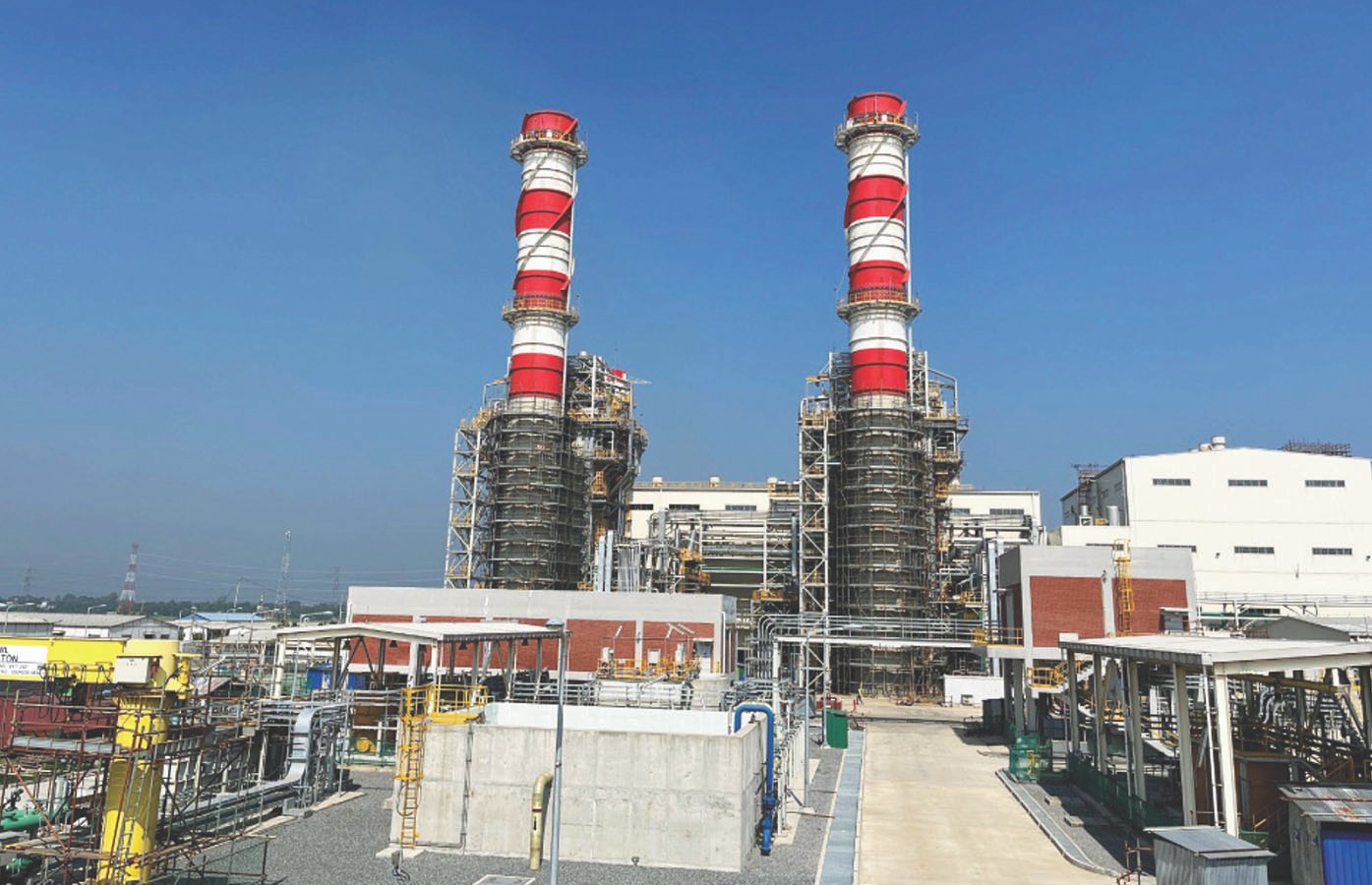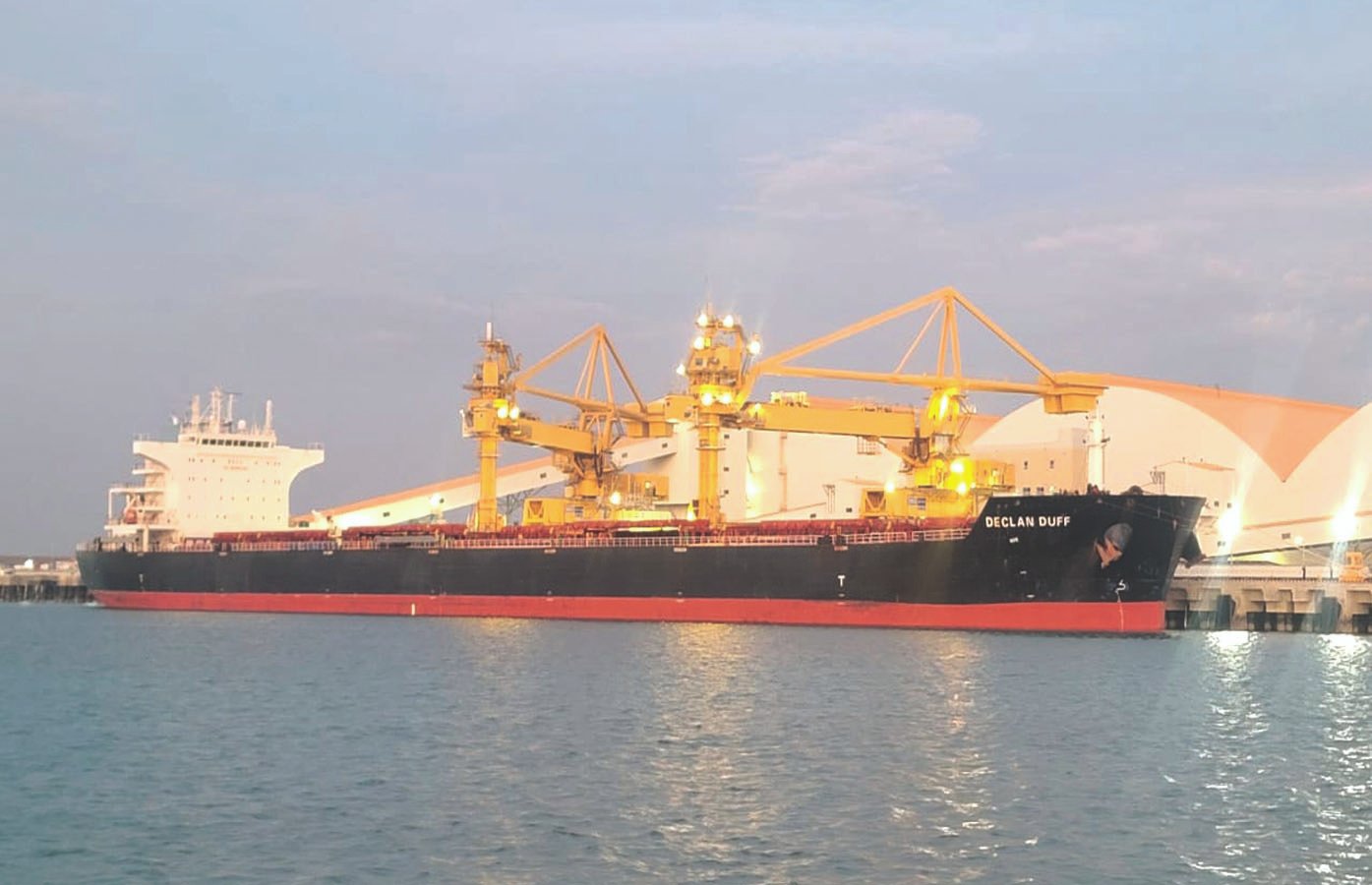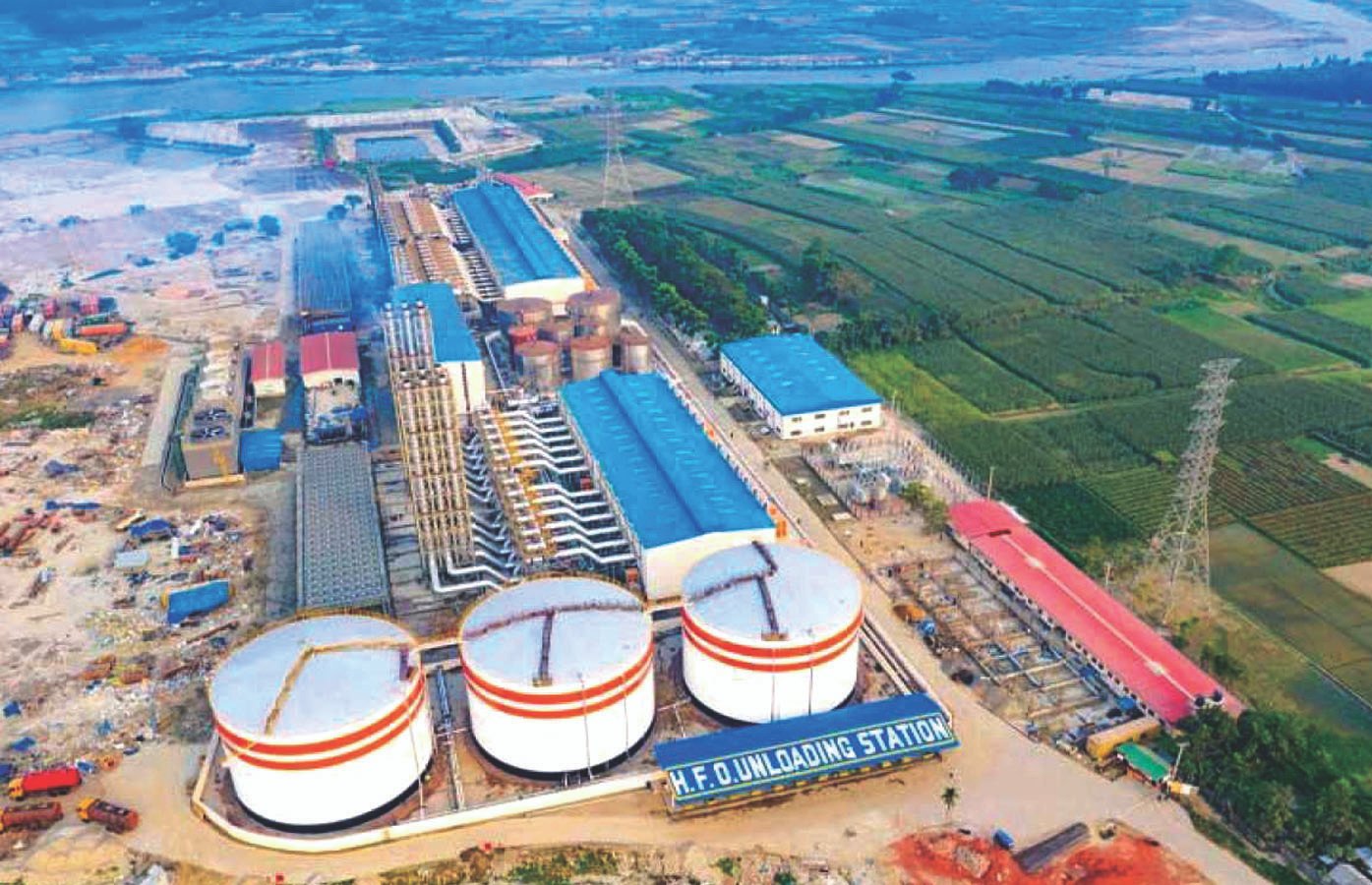
The country’s peak demand for electricity this winter ranges between 9,500-11,000MW. Bangladesh Power Development Board (BPDB) has no issue managing the demand even after restricting the use of furnace oil-based power plants. However, BPDB has already started planning different strategies to meet and manage the expected high summer demand from March to August. The forecast of peak demand during that period is estimated to be 17,500-18,000MW. The installed generation capacity of the grid-connected electricity is 27,820MW. Yet, the major challenge is ensuring an adequate supply of gas, coal, and furnace oil, and for this to meet the energy, the government needs enough money in dollars and taka. Alongside making payments of due bills, dollars are required to purchase coal and liquid fuel. For managing the gas supply, dollars are needed to facilitate LNG imports and make payments for IOCs’ share of gas. It is also urgent to pay the huge outstanding bills against electricity imported from India. But the problem is officials at the BPDB, Petrobangla, and Energy and Power divisions, cannot say how and when the outstanding payments would be made. It is being mentioned that these can be made as and when the finance ministry allocates and releases the funds. ]
The installed generation capacity of grid-connected power is 27,820MW. Gas-based generation capacity is 12,413 MW or 44.62% of the total generation capacity. Petrobangla needs to supply 2420 MMCFD gas to meet the capacity demand of gas-based power. BPDB has requested Petrobangla to supply at least 1,500-1,600 MMCFD consistently to manage the summer demand. Petrobangla had a marginally higher production capacity last year. Yet it was not possible to supply more than 1,150-1,200 MMCFD last year. A senior executive on condition of remaining unanimous mentioned that the extent of gas supply to power from March to August will largely depend on the volume of LNG imports during that period. It needs to be mentioned that Petrobangla owes US$470 million to the suppliers of LNG under long-term contracts and spot supply. On the other hand, Petrobangla gets Tk28,000 crore from the power sector. The outstanding payment of a private sector company is Tk800 crore. Chevron and Qatar Gas have already written to the Energy and Mineral Resource Division (EMRD) to realize the payments. A source at Petrobangla claimed that it will be possible to supply gas to the level of last summer if two FSRUs consistently supply 1,100 MMCFD RLNG to the gas grid. Subject to getting 1,150-1,200 MMCFD gas like last year, BPDB will be able to generate 6,000-6,500MW gas-based power. It will be possible to generate 8,000MW gas-based power if a 1,500 MMCFD gas supply is available. The power grid has some constraints too – evacuation of electricity. Three Companies – Zera of Japan and Bangladesh’s Summit Power and Unique Group – have three fuel-efficient modern power plants of 1,800MW combined capacity. Even if gas is supplied to these plants, it may not be possible to evacuate more than 1,000MW from these plants due to power grid constraints. BPDB management is optimistic about generating up to 6,500MW from gas.

The second reliable fuel for power is coal. The capacity of coal power including 1,800MW supply from Adani Power Plant at Jharkhand is 7,169MW. Beyond this, the 660MW unit of the 1,320MW capacity RPCL-Norinco JV power plant is ready to commence operation. On condition of BPDB making outstanding payments, the 1,320MW capacity Payra Power Plant, 1,244MW Bashkhali Power Plant, 1,200MW Matarbari Power Plant, and 307MW Barishal power plant can generate up to 85% of the plant capacity. However, the operation of the 1,320MW Rampal Power plant is regularly impacted by technical glitches. As such BPDB is not optimistic about getting a capacity power supply from Rampal even if the coal supply is ensured. On the other hand, due to draft issues of the Ramnabad channel, coal transportation to Payra and RPCL plants may be affected. The Adani group may supply up to 1,400MW from the Jharkhand plant. But BPDB owes US$845 million to the Adani Group. They requested a schedule of repayment from BPDB. If the payment issues are not resolved, it may not be possible to get 1,400MW power from Adani Group consistently. There will not be any issue of evacuation of 660MW power from the RPCL-Norinco plant. A 400 KVA power transmission line can evacuate power from both Payra and RPCL power plants. However, there exist some technical issues at the Aminbazar substation. If required dollars and taka are available on time, up to 7,000MW of coal-based power generation is possible during the ensuing summer. But the BPDB expects to generate up to 5,500MW.
It appears that up to 12,000MW generation may be possible from gas and coal. If the BPDB estimate of the highest peak demand of 18,000MW is considered, up to 6,000MW will be required to come from other sources. Imports and furnace oil will have to contribute to this. There is a 230MW hydropower generation capacity. During summer it may not be possible to get more than 100-120MW from there. From India, through Bheramara and Tripura connectivity, it is possible to import up to 1,160MW. Here too, there are significant outstanding payments. On condition of reducing the outstanding dues, 1,000MW import may be possible. This possibility may still leave a 4,500-4,800MW supply shortage. The third option is furnace oil-based generation having a capacity of 5,885MW, including 4,600MW belonging to the private sector. The entrepreneurs import furnace oil for the plants. These are peaking plants. But at times these require to be operated as base load plants. BPDB will require up to 4,000-4,500MW supply coming from HFO-based plants during peak summer. But BPDB owes Tk9,000 crore outstanding bills to the IPPs. The BIPPA has been lobbying with BPDB and the Power Division since November 2024 to realize the payments. BPDB and the Power Division are sincere about making payments. But they have no money to pay. Until they get an allocation from the Finance Ministry, the outstanding payments can not be made. David Hasanat, President of BIPPA, informed EP that they apprised the BPDB and Power Division about their inability to keep their plants operational unless the outstanding payments were made. The President of BIPPA informed the BPDB that they cannot operate their plants during the ensuing summer unless at least Tk2,500 crore of the outstanding payment is made within the next 10 days. He also mentioned that it usually takes up to 45 days to bring furnace oil to the power plants from getting payments, opening LC, and importing the fuel. A lot of delays have already been made. Further delays may make it extremely difficult to get any supply from the HFO-based power plants during the summer.

Engr. Rezaul Karim, Chairman of BPDB, while talking about the outstanding payments with EP, said the total outstanding payment of BPDB now is Tk35,000-3,6000 crore. BPDB has never stopped payments. If not full, some payments are regularly made. BPDB cannot pay Tk2,500 crore within 10 days. Power plant owners must realize this. We are sincerely endeavoring to resolve this matter. Apart from making these outstanding payments, we also owe a huge outstanding payment to Petrobangla for gas supplied.
One BPDB executive on condition of remaining anonymous informed that there exist 114 power plants in Bangladesh. Of these 52 base load plants have a total generation capacity of 19,229MW. The remaining 92 peaking plants can generate 8,505MW. On 30th April 2024, the highest generation recorded was 16,477MW. The deficit was the bare minimum on that day. During the ensuing summer from March to August, the peak demand from 6 pm to 11 pm may be 17,500-18,000MW. Gas, Coal, and power imports may contribute up to 13,000MW. But to meet the 18,000MW peak demand power system will up to 5,000MW from furnace oil-based plants. But this is not possible. Maximum generation will depend on how quickly BPDB makes substantial payment of the outstanding dues. Power supply from Adani Power Plant may also be reduced due to payment issues. Considering all these, load-shedding will be unavoidable; load management must be given priority. Planned load-shedding should be done to restrict the use of HFO plants. The chairman of BPDB assured that there should not be any issue in meeting the day-peak demand.

The power and energy sector is now trapped in the circle of crisis. In 2010, Dr. M Tamim through analysis had alerted that unless the policymakers stress upon exploration and exploitation of domestic primary fuel resources, the country may become 90% dependent on imported fuel by 2030. However, the policymakers of the former government hardly heeded the suggestion and continued growing big in fuel imports. In 2025 the system depends 50% on imported fuel. During and after the COVID-19 pandemic, fuel prices in the global market skyrocketed. Experts suggested introducing planned load-shedding to reduce reliance on imported fuel. But the Energy Adviser and state minister for energy of the past regime chose to ignore it too. Consequently, the expenditure in the energy sector kept growing. Subsidy and outstanding payments kept on accumulating. Bangladesh lost the capacity for importing fuel from the global market because of fund shortage though the price of fuel reduced to a much lower level in the global market. The government owes 9-month equivalent payments to power suppliers. The former government could not pay for power from July 2023 to February 2024. The situation did not improve even after the fall of the former regime. BPDB alone now owes Tk35,000-36,000 crore to the power suppliers. Petrobangla owes US$470 million to IOCs and LNG suppliers. The situation has aggravated to such a stage that power cannot be generated up to the desired level unless the payments are made. Load-shedding cannot be avoided during summer if the required fuel supply cannot be made.
Prof Dr M Tamim, Vice Chancellor of Independent University, Bangladesh while talking about the power sector situation mentioned that there is no off-the-shelf solution or a magic formula to solving the present and emerging crisis. The crisis is intense. It will not be possible to meet the summer demand unless the outstanding huge power bills are paid. But in the present situation, the government does not have enough dollars and taka for making payments. There is not even enough money to make part payments and keep all plants in operation. Hence, before the summer sets in, plans must be made for load-shedding and executed with prior intimation as far as practicable. That will somehow reduce stress on the power system for relying on imported fuel.
Engr. Mizanur Rahman, a former member of BERC, suggested that austerity in use must be preferred to increased reliance on expensive and dirty liquid fuel. Planned load-shedding will be the unavoidable option. He said the former government did not listen to this. The summer demand will peak at 18,000MW. Bangladesh can generate that. But Bangladesh does not have the required fuel for that. Imports of expensive fuel from the global market will be essential. Mr. Mizan believes that introducing planned load-shedding during the day and night can minimize the use of expensive furnace oil. Otherwise, the cost of generation would continue to remain high. The power system will be further burdened with outstanding payments. People will rather accept the pains of planned load-shedding. He said there is no issue with generation but fuel supply is the main challenge. We must conserve fuel, he said.
Energy sector analysts observed that initiatives taken to increase fuel supply, particularly own gas would take at least 3-4 years to deliver dividends. A project for the evacuation of about 2Tcf gas stranded at Bhola Island to the gas grid has been initiated. It may also take 4 years to accomplish. Our capacity for low-cost, gas-based power generation is 12,000MW. LNG price in the global market is now at a comfortable level. However, Bangladesh does not have the required infrastructure to increase LNG imports. The government is working on two new FSRUs and a land-based LNG terminal. FSRUs may take 3 years and the LBT may take 5-6 years to commence operation. Furnace oil-based power generation will continue till then. The cost of generation and obligations of higher payments cannot be avoided. There exists a 7,800MW coal-based power generation capacity. But for the dollar crisis, coal imports are disrupted from time to time. There are issues with coal transportation as well. Bangladesh cannot utilize the full capacity of coal power as such.
Virtually, the power and energy sector is sinking under the burden of debt. Around Tk41,000 crore has been allocated as a subsidy in FY25. But that is proving not enough to bail out the sector from the crisis. The use of expensive fuel to meet the summer demand will increase the debt payment obligations. Experts observe that the use of expensive fuel must be minimized as far as practicable. For this, there is no option but to go for austerity. Planned load-shedding will be the best option. There should be no debate over preferring planned load-shedding to bearing the burden of huge outstanding payments.
Download Cover As PDF/userfiles/EP_22_15_Cover.pdf





